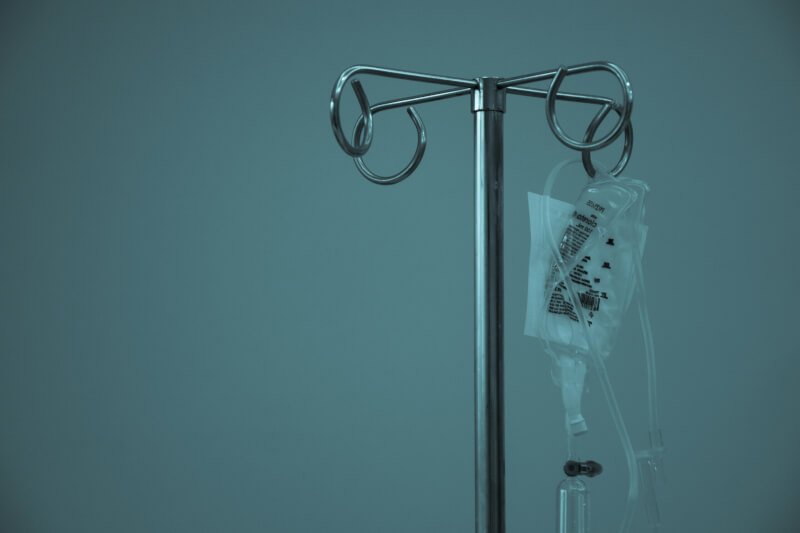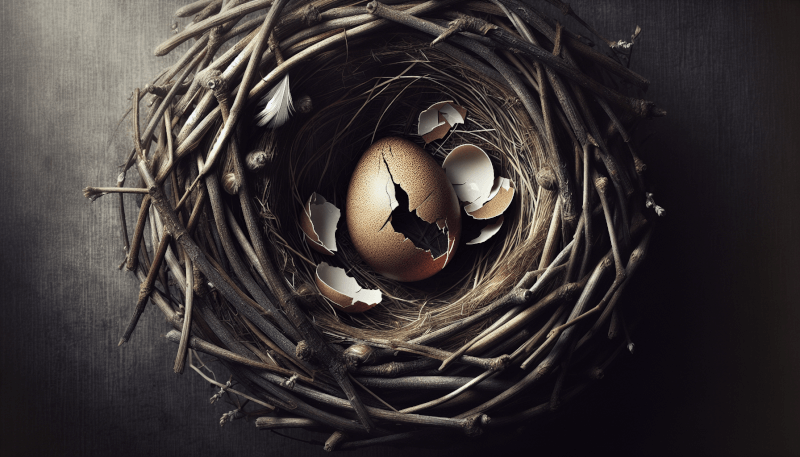In this article, you will discover the most common reproductive system disorders that can affect birds, and learn effective strategies to manage and treat these conditions. From egg binding to reproductive tumors, avian reproductive system disorders can be serious and potentially life-threatening for our feathered friends. However, with proper understanding and care, you can help your avian companion overcome these challenges and ensure their reproductive health and well-being. So, let’s explore the common reproductive system disorders in birds and discover the best ways to manage them.

Specific Reproductive System Disorders
1.1 Egg Binding
Egg binding, also known as dystocia, is a condition where a female bird is unable to pass an egg. This can be caused by a variety of factors, such as inadequate nesting materials, calcium deficiency, or poor muscle tone in the reproductive tract. When a bird is egg bound, it may show signs of distress, such as straining, abdominal swelling, or even being unable to perch.
To manage egg binding in your bird, it is important to provide a comfortable and safe nesting environment. Make sure there is ample nesting material, such as soft shavings or grass, to support the bird during egg laying. Additionally, ensuring a balanced diet rich in calcium can help prevent calcium deficiency, which is a common cause of egg binding. If your bird is showing signs of egg binding, it is crucial to seek veterinary assistance immediately. A veterinarian will be able to provide treatments such as calcium supplements, supportive care, or even manual egg removal if necessary.
1.2 Dystocia
Dystocia refers to difficulty or inability in egg-laying. While it is similar to egg binding, dystocia can also include other issues related to the reproductive system. Factors that can lead to dystocia include malnutrition, hormonal imbalances, genetics, or physical deformities. Symptoms of dystocia may include straining or prolonged egg-laying, behavioral changes, or vaginal discharge.
Managing dystocia involves addressing the underlying cause. Providing a balanced and nutritious diet helps to improve the bird’s overall health and reduce the risk of dystocia. Hormone therapy may also be considered under the guidance of a veterinarian. In severe cases, surgical intervention may be necessary to correct any physical deformities or obstructions in the reproductive tract.
1.3 Infertility
Infertility occurs when a pair of birds fails to produce viable eggs that can hatch. There can be various reasons for infertility, ranging from age-related factors, hormone imbalances, nutritional deficiencies, or genetic disorders. Infertile eggs may not develop or hatch, and the birds may repeatedly fail to produce offspring.
To manage infertility, it is essential to evaluate the health and reproductive potential of both birds in the pair. Ensuring a balanced and nutritious diet with adequate vitamins and minerals helps support reproductive health. Consulting with a veterinarian is recommended to rule out any underlying health issues and to determine the best course of action. Depending on the cause of infertility, treatments such as hormonal therapy, dietary adjustments, or reproductive stimulation techniques may be considered.
1.4 Egg Peritonitis
Egg peritonitis is a serious condition where an egg breaks internally, causing an infection in the abdominal cavity of a female bird. This can occur due to egg binding, dystocia, or the presence of bacteria in the reproductive system. Symptoms of egg peritonitis include lethargy, abdominal distension, weakness, and difficulty breathing.
Managing egg peritonitis requires immediate veterinary intervention. Antibiotics and antimicrobial measures are often needed to combat the infection. In severe cases, surgical removal of the infected egg or egg material may be necessary. Preventing egg peritonitis involves proper nesting box hygiene, regular monitoring of egg-laying behaviors, and identifying and addressing any underlying reproductive system disorders.
Environmental Factors and Management
2.1 Light and Temperature
The reproductive systems of birds are highly influenced by light and temperature conditions. Ensuring appropriate lighting and temperature levels in the bird’s environment is crucial for maintaining optimal reproductive health. During breeding seasons, providing 12-14 hours of light per day can stimulate hormone production and encourage proper egg formation. Similarly, maintaining a suitable temperature range, generally between 65-85°F (18-29°C), is important for optimal egg development and fertility.
Proper management of light and temperature requires providing a consistent light schedule and monitoring the temperature in the bird’s environment. Using artificial lighting when natural daylight is insufficient can help maintain the desired photoperiod. It is important to avoid sudden changes in temperature and provide adequate heating or cooling measures as needed to ensure the bird’s comfort and reproductive success.
2.2 Nesting Materials and Cages
The choice of nesting materials and the design of the bird’s cage play a significant role in their reproductive health. A comfortable and safe nesting environment is crucial for successful egg-laying and breeding. The nest should be lined with soft materials, such as shavings or grass, to provide a cozy and supportive foundation for the eggs. It is important to regularly monitor and replace the nesting materials to maintain cleanliness and prevent the accumulation of bacteria.
The bird’s cage should be appropriately sized to provide enough space for nesting. It should also be equipped with a nesting box to create a designated and secure area for egg-laying. The nesting box should have low sides for easy access and be placed in a quiet and secluded area of the cage to provide privacy for the breeding pair. Regular cleaning and disinfection of the nesting box and cage are essential to prevent the spread of infections and ensure a healthy breeding environment.
2.3 Cleanliness and Hygiene
Maintaining cleanliness and proper hygiene in the bird’s environment is vital for preventing the occurrence of reproductive system disorders. Regular cleaning of the cage, perches, and nesting materials helps to remove feces, bacteria, and other potential sources of infection. It is recommended to provide fresh and clean water daily, as contaminated water can lead to various health issues, including reproductive disorders.
Along with regular cleaning, it is important to practice good hygiene habits when handling the birds. This includes washing hands before and after contact with the birds, using clean utensils and feeding dishes, and maintaining a clean working area. By practicing good cleanliness and hygiene, you can help create a safe and healthy environment for your birds and reduce the risk of reproductive system disorders.

Diet and Nutrition
3.1 Balanced Diet
A balanced diet plays a crucial role in maintaining the overall health and reproductive success of birds. The diet should consist of a variety of fresh fruits, vegetables, grains, and protein sources. Providing a well-rounded diet ensures that the birds receive all the necessary nutrients, vitamins, and minerals required for optimal reproductive function.
It is important to consult with a avian veterinarian to develop a suitable diet plan for your birds based on their species, age, and specific nutritional needs. Regularly monitoring their weight and body condition can help determine if any dietary adjustments are needed. By providing a balanced diet, you can help prevent nutritional deficiencies and promote healthy reproductive system function.
3.2 Calcium and Vitamin D Deficiency
Calcium and vitamin D deficiencies are common nutritional disorders that can affect the reproductive health of birds. Calcium is essential for egg formation and muscle contraction during egg-laying. Vitamin D plays a crucial role in calcium absorption and the regulation of reproductive hormones. Insufficient levels of calcium and vitamin D can lead to weak or thin eggshells, muscle weakness, and decreased fertility.
To prevent calcium and vitamin D deficiencies, it is important to provide a calcium-rich diet and access to natural sunlight or artificial UVB lighting. Calcium supplements can be given under the guidance of a veterinarian if necessary. Regularly monitoring the bird’s calcium levels through blood tests can help ensure they are within the appropriate range. By addressing calcium and vitamin D deficiencies, you can help maintain strong eggshells and support optimal reproductive system health.
3.3 Excessive Protein Intake
While protein is an essential part of a bird’s diet, excessive protein intake can have negative effects on their reproductive health. High levels of protein can disrupt the hormone balance and lead to hormonal imbalances and reproductive system disorders. This can affect egg production, hatchability, and overall fertility.
Providing a diet that contains an appropriate level of protein for the bird’s species and life stage is crucial. Consult with an avian veterinarian to determine the optimal protein level for your bird. Monitoring the bird’s diet and adjusting the protein intake as needed can help prevent excessive protein intake and support healthy reproductive system function.

Preventing and Managing Common Disorders
4.1 Regular Veterinary Check-ups
Regular veterinary check-ups are essential for maintaining the overall health and well-being of your birds, including their reproductive system. A veterinarian experienced in avian care can conduct physical examinations, perform necessary diagnostic tests, and provide guidance on proper reproductive system management. Regular check-ups allow for early detection and treatment of any potential reproductive disorders, increasing the chances of successful management and prevention of complications.
4.2 Proper Housing and Nesting Boxes
Providing appropriate housing and nesting boxes is crucial for preventing and managing common reproductive disorders. The bird’s cage should be spacious enough to accommodate their natural behaviors, with a separate area dedicated to nesting. The nesting boxes should be cleaned regularly, and the nesting materials should be replaced to maintain a clean and comfortable environment for the birds.
Regularly monitoring the nesting behavior and inspecting the eggs can help identify any issues early on. If there are concerns or abnormalities, it is important to seek veterinary advice promptly. By ensuring proper housing and nesting conditions, you can create a conducive environment for successful breeding and reduce the risk of reproductive system disorders.
4.3 Adjusting Diet and Nutrition
Proper diet and nutrition are essential for the health and reproductive success of birds. Regularly evaluating the bird’s diet and making adjustments as necessary can help prevent and manage common reproductive system disorders. Consult with an avian veterinarian to determine the appropriate diet for your bird’s species, age, and specific needs.
Monitoring the bird’s weight, body condition, and reproductive behaviors can provide valuable insights into their nutritional well-being. If there are any concerns, seek veterinary guidance for dietary adjustments or supplementation. By providing a balanced and nutritious diet, you can support the bird’s overall health and reproductive system function.
4.4 Providing Adequate Light and Temperature
Maintaining appropriate lighting and temperature conditions is crucial for the reproductive health of birds. Providing a consistent and suitable photoperiod stimulates hormone production and supports optimal egg-laying and breeding. It is important to monitor the light levels and adjust as needed to maintain the desired photoperiod.
Similarly, maintaining a suitable temperature range is important for egg development and fertility. Regularly monitoring the temperature in the bird’s environment and providing appropriate heating or cooling measures can help ensure their reproductive success. By providing adequate light and temperature conditions, you can help prevent reproductive system disorders and promote successful breeding.
4.5 Maintaining Cleanliness and Hygiene
Regularly maintaining cleanliness and hygiene in the bird’s environment is essential for preventing and managing common reproductive system disorders. Cleaning the cage, perches, and nesting materials removes potential sources of infection and reduces the risk of reproductive health issues. Providing fresh and clean water, along with practicing good hygiene habits when handling the birds, further minimizes the risk of infections.
Regularly monitor the bird’s reproductive behaviors and inspect the nesting box for any signs of abnormalities or infections. If there are any concerns, seek veterinary attention promptly. By maintaining cleanliness and hygiene, you can provide a safe and healthy environment for your birds, reducing the risk of reproductive system disorders.



